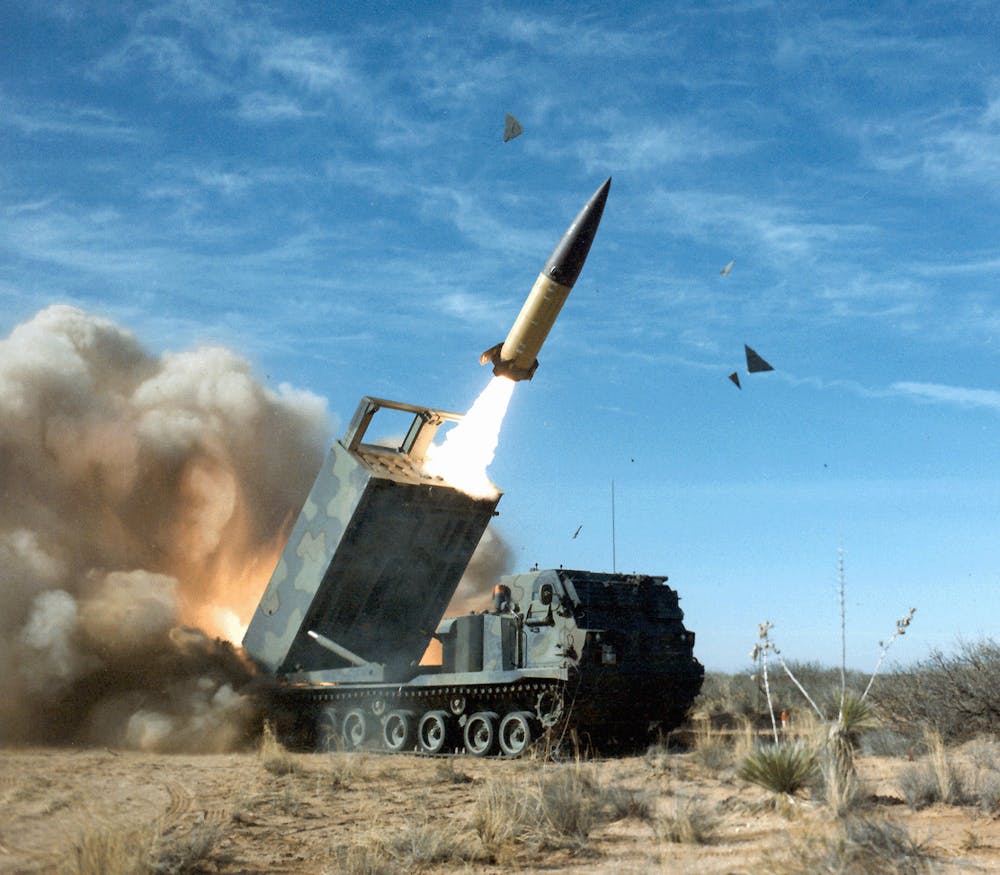By Gauri Patel
Staff Writer
In a significant escalation of the war between Ukraine and Russia, Ukraine has fired long-range missiles supplied by the United States at Russian territory for the first time, according to NPR.
The attack targeted a military weapons facility in Russia's Bryansk region on Nov. 19. According to NPR, Russia's Defense Ministry reported that six missiles were launched, with five intercepted and one causing minor damage. Ukrainian officials have not confirmed the specifics of the attack but emphasized their expanded long-range strike capabilities.
The move comes shortly after the Biden administration approved Ukraine’s use of the Army Tactical Missile System (ATACMS) within Russia, ending months of restrictions on Ukraine's use of long-range, Western-made weaponry to avoid escalating the conflict. While Kyiv has previously used drones to strike deep within Russia, this marks its first use of these weapons supplied by the U.S.
Ukraine and many of its Western supporters have been lobbying Washington for months to allow Ukraine to use the ATACMS to strike deeper inside Russia, arguing that the U.S. ban was limiting Ukraine's ability to counter Russia's attacks on cities and electrical grids, according to the Associated Press.
This comes as Russia has launched drone and missile attacks along the frontlines of eastern and southeastern Ukraine, aiming to disable Ukraine’s power grid and weaponize the freezing temperatures for a third consecutive winter. Officials describe these attacks as some of the largest in months, according to the Associated Press.
“And this is the answer to everyone who tried to achieve something with Putin through talks, phone calls, hugs and appeasement,” said Ukrainian President Volodymyr Zelenskyy, referring to the Russian attacks.
Meanwhile, approximately 11,000 North Korean troops have been deployed to Russia’s Kursk region, according to the U.S. Department of Defense.
There is no evidence that the North Korean troops have engaged in combat with Ukrainian troops in the Kursk region yet; however, U.S. officials believe some troops are already positioned to join Russian forces in the coming days.
At a news conference with Defense Secretary Lloyd Austin, Secretary of State Antony Blinken and their South Korean counterparts, Austin said the North Korean troops have been given Russian uniforms and equipment, and Blinken revealed that the soldiers have undergone training in artillery, drone operations and infantry tactics, indicating their likely role in front-line combat.
According to the Associated Press, Austin added that Pyongyang supporting Russia would be a “very, very serious issue,” saying the escalation has the potential to broaden the war.
Although Kyiv has previously used drones to target regions further within Russia than the Bryansk region, Moscow has maintained that using long-range Western weapons would constitute a major escalation.
The Kremlin approved changes to Russia’s nuclear doctrine, setting out new conditions for carrying out a nuclear response on Western states. The changes now state that any attack on Russia by a non-nuclear state, if supported by a nuclear power, will be treated as a joint assault, according to NPR.
“If the long-range missiles are used from the territory of Ukraine against the Russian territory, it will mean that they are controlled by American military experts and we will view that as a qualitatively new phase of the Western war against Russia and respond accordingly,” said Russian Foreign Minister Sergey Lavrov at a press conference at the G20 meeting in Rio de Janeiro.
U.S. State Department spokesman Matthew Miller criticized the Kremlin's updated nuclear doctrine, stating that Russia has consistently used nuclear threats to intimidate Ukraine and other nations, according to the Associated Press. He emphasized that the U.S. sees no need to change its nuclear stance but urged Russia to stop its “bellicose and irresponsible” rhetoric.
The use of long-range missiles and changes to Russia's nuclear doctrine signal a significant escalation in the conflict, raising concerns about the consequences for regional and global stability.







